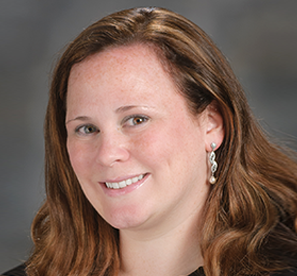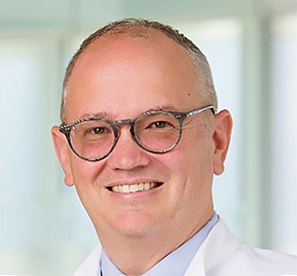Haystack Oncology, a Quest Diagnostics® company, is excited to attend the 2024 American Society of Clinical Oncology (ASCO) meeting May 31–June 4 in Chicago, IL. The 2024 ASCO conference will feature more than 200 sessions based on the theme, “The Art and Science of Cancer Care: From Comfort to Cure.” Learn more about ASCO 2024.
Visit our booth (#35145) to learn about Haystack MRD™, our next-generation minimal residual disease (MRD) test that delivers exceptional sensitivity, and meet our experts in precision oncology.
Meet our experts at ASCO—Saturday, June 1 from 3–4 PM at booth #35145
We’ve scheduled a time to ensure that you can catch our oncology experts. Quest offers a single solution that brings seamless access along the cancer care continuum, including a comprehensive genomic portfolio of more than 500 genes, MRD testing to support enhanced treatment decisions, and patient survivorship support. Don’t forget to mark your calendars and come prepared with questions. Hope to see you there!
 Dan DanEdelstein | 3:00–3:15 | Dan Edelstein, MS, MBA, is Vice President and General Manager of Haystack Oncology, a Quest Diagnostics company. Mr Edelstein has more than 15 years of liquid biopsy clinical development and commercialization experience. He was previously part of the team at Johns Hopkins that pioneered the use of circulating tumor DNA (ctDNA) to detect and track the progression of cancer, and he led the development of the world’s first CLIA laboratory for ctDNA analyses, delivering the first commercially available liquid biopsy assay for clinical practice and prospective clinical trials. |
 Kelly KellyBrassil | 3:15–3:30 | Dr Kelly Brassil, PhD, RN, FAAN, serves as Senior Director of Business Development at Pack Health, a Quest Diagnostics Company. Dr. Brassil has a clinical background in academic medicine and 18 years of experience as an oncology nurse. Her research interests include exploring novel approaches to enhance the care experience of patients across the cancer trajectory, and currently serves as a PI for a multi-site research protocol focused on support, patient-reported, clinical, and biometric outcomes for cancer survivors. In her current role, she leads Pack Health’s oncology platform and supports the company’s strategic partnerships, business strategy, and research portfolio. |
 Mark MarkKruzel | 3:30–3:45 | Dr Mark Kruzel, MD, MBA, is the Medical Director of Oncology at Quest Diagnostics. In this role, Dr Kruzel leads the development and implementation of oncology medical affairs strategies and initiatives. He has more than 12 years of experience in oncology-focused roles, ranging from product development to medical science liaison, in which he has authored papers, provided educational seminars, and participated in initiatives to support molecular oncology testing. He is passionate about advancing the field of precision medicine and translating scientific insights into clinical practice. |
 Yuri YuriFesko | 3:45–4:00 | Dr Yuri Fesko, MD, is Senior Vice President and Chief Medical Officer (CMO) of Quest Diagnostics. Board certified in oncology, hematology, and internal medicine and former Medical Director of Oncology of Duke Cancer Center, Dr. Fesko has led clinical development of several innovations for Quest. These include Quest’s 500-gene somatic tumor next-generation sequencing panel and precision pathways model of care, which speeds biomarker testing for advanced cancers. In addition, he led clinical research on Haystack Oncology’s MRD technology. As CMO, Dr Fesko oversees medical affairs, including clinical development, health plan policy support, and care delivery models. He also leads scientific communications for a medical team of approximately 700 MDs and PhDs. |
Attend Dr Jeanne Tie’s update on the DYNAMIC study
Dr Jeanne Tie from the Peter MacCallum Cancer Centre in Melbourne, Australia is the first author on the DYNAMIC study that was presented 2 years ago, which was the first prospective, randomized controlled trial to demonstrate the clinical utility of MRD testing to help guide adjuvant treatment decisions. Haystack MRD uses an optimized version of the ctDNA detection technology used in the DYNAMIC study. Dr Tie is presenting 5-year results from that study at ASCO.
- Abstract title: “Circulating tumor DNA analysis guiding adjuvant therapy in stage II colon cancer: Overall survival and updated 5-year results from the randomized DYNAMIC trial”
- Track: Special Sessions, Gastrointestinal Cancer
- Abstract: 108
- Session type: Clinical Science Symposium
- Time: June 3, 10:37 AM to 10:49 AM
About Haystack MRD
Next-generation ctDNA detection with exquisite sensitivity and specificity for precise MRD reporting
Haystack MRD is a tumor-informed ctDNA detection test for postsurgical measurement of residual disease in solid tumor settings. The test is powered by sequencing chemistry that significantly reduces noise to detect even the least-abundant ctDNA molecules in blood. This unique ability translates to better minimal residual disease (MRD) detection for greater confidence when making key clinical decisions.
Purpose-built MRD technology developed by pioneers of cancer research
Haystack MRD was designed specifically for ultrasensitive ctDNA detection when testing for residual, recurrent, and resistant disease. Better sensitivity means the right patients are more likely to receive the right treatment at the right time, which can significantly improve outcomes and quality of life for patients who have been diagnosed with cancer.
Backed by the power of Quest
Haystack MRD offers end-to-end MRD test reliability, powered by Quest Diagnostics credentialed staff, labs, logistics, service, reporting, and technology. Plus, the transition between Haystack MRD and Quest’s other advanced oncology testing is seamless, providing ease and convenience in the testing process for doctors and patients.
This test was developed and its analytical performance characteristics have been determined by Haystack Oncology. It has not been cleared or approved by FDA. This assay has been validated pursuant to the CLIA regulations and is used for clinical purposes



